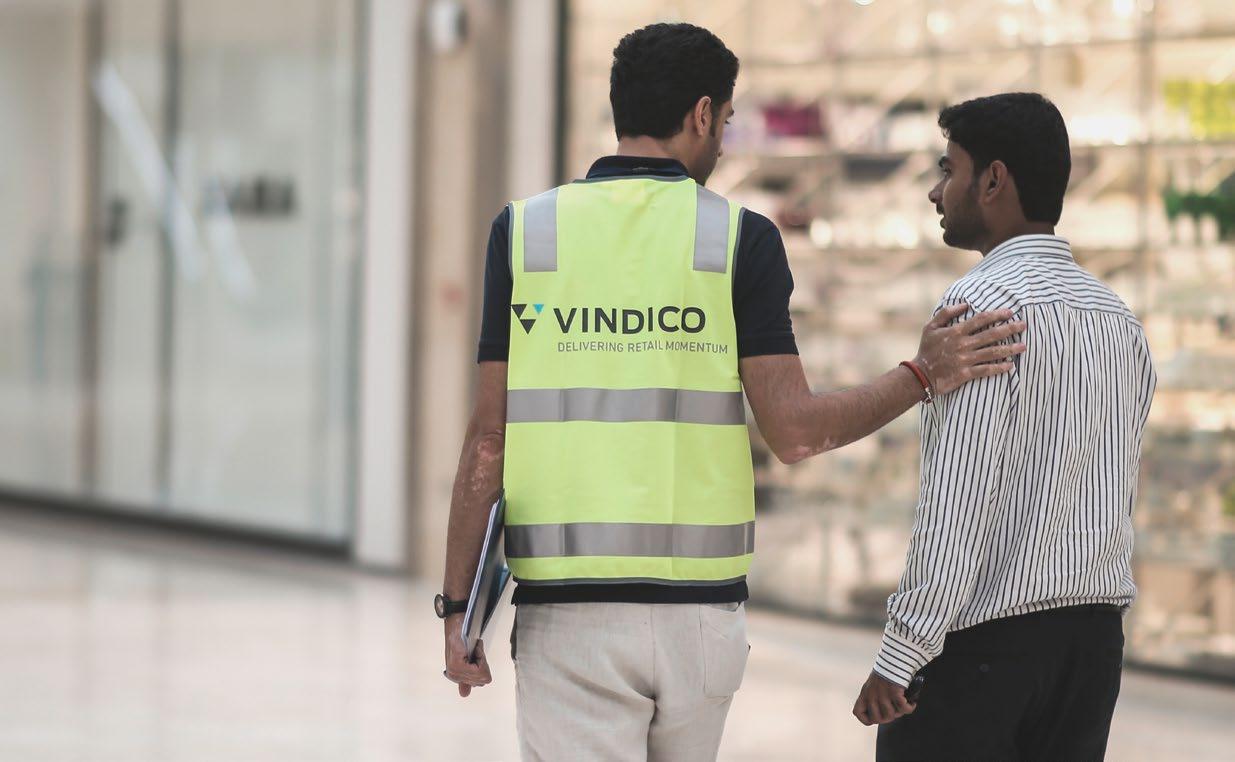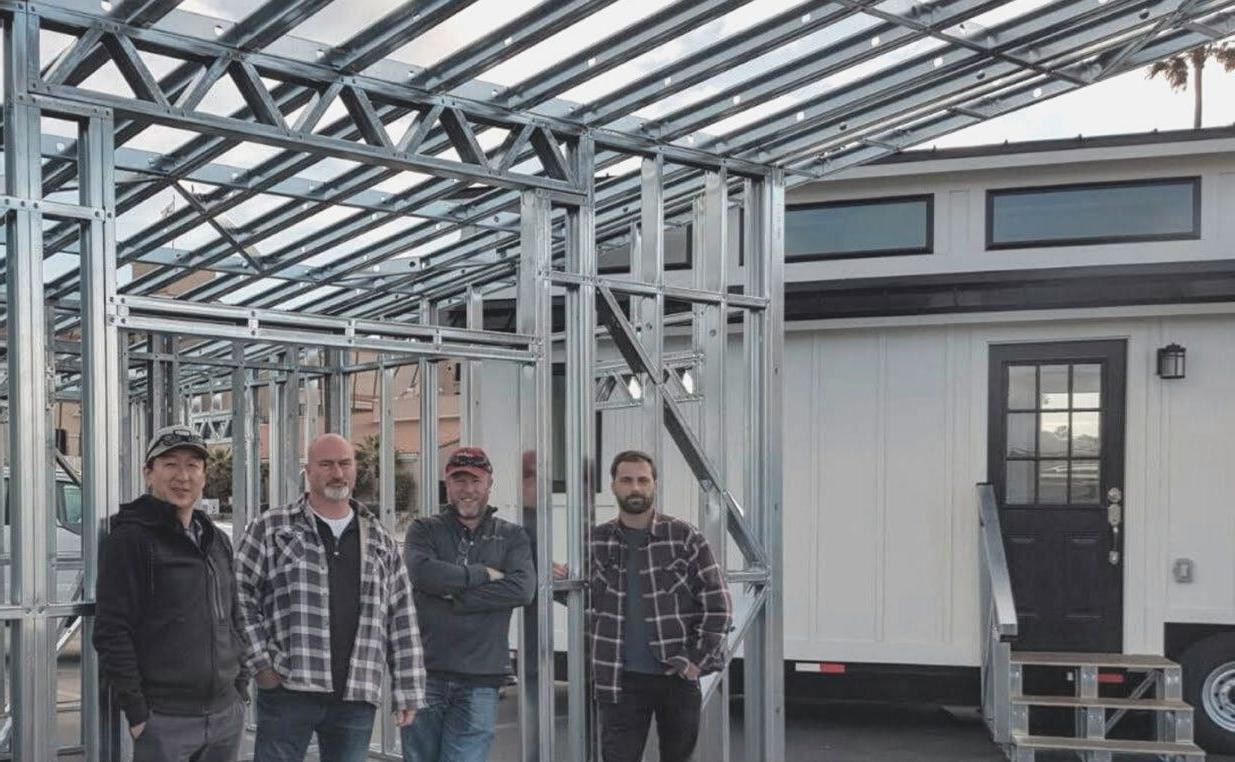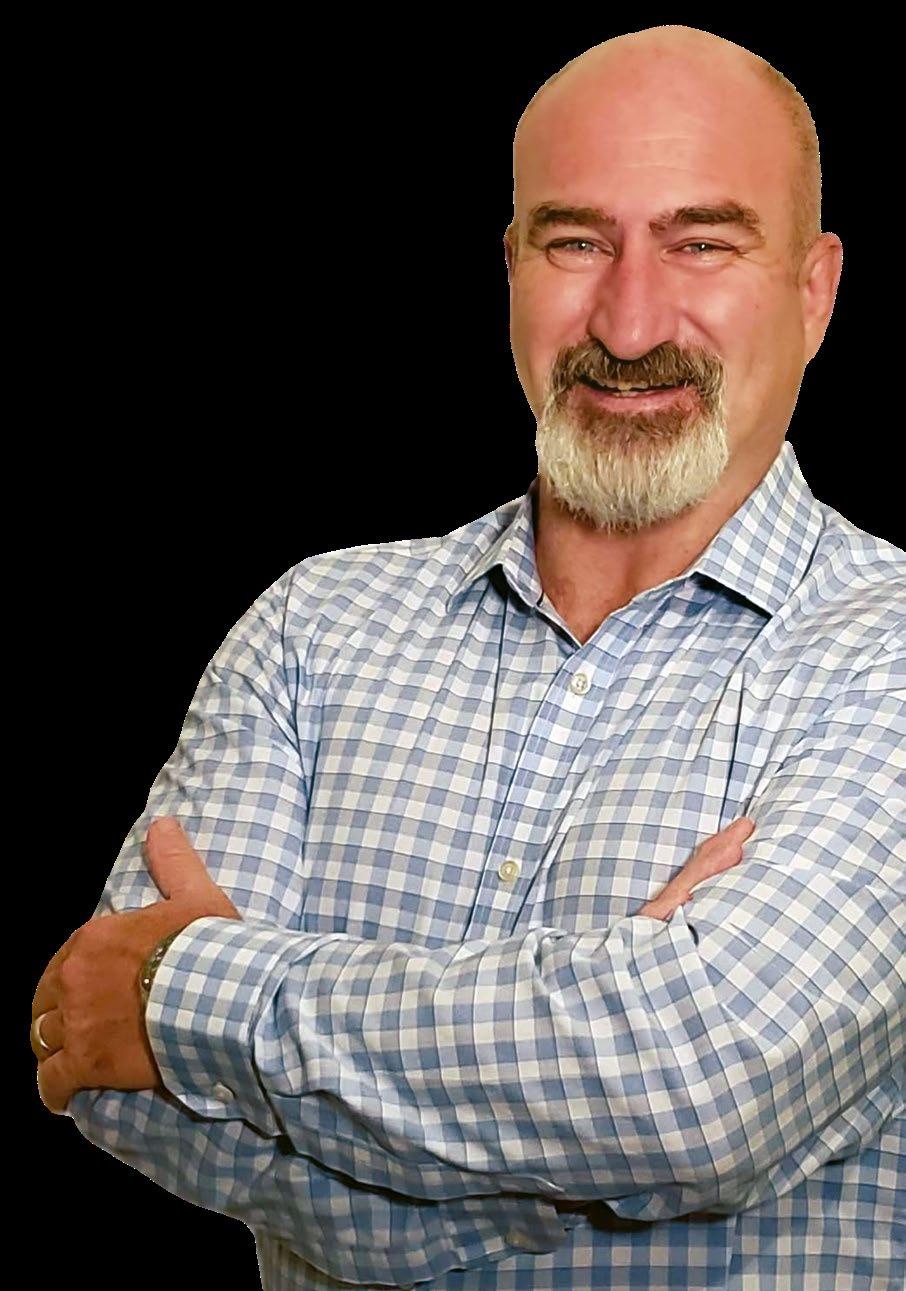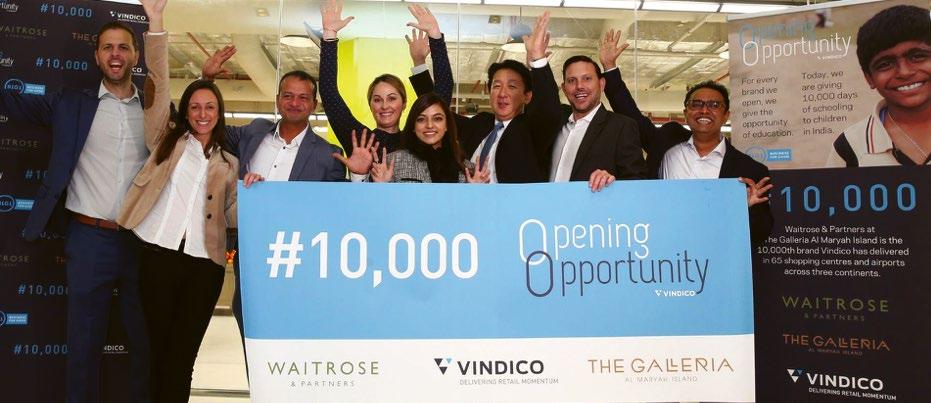
7 minute read
ON THE COVER
Connecting Brands & Buildings Through the Reinvention of Retail Real Estate
Marc McQuain and Peter Row have been business partners for eighteen of the twenty-eight years they have each been in retail. Three recessions have been waypoints in an entrepreneurial journey that is again looking at opportunities for reinvention.
Advertisement
The aftermath of the dot-com bubble bursting in 2000 was the backdrop for launching Vindico, a start-up consultancy that allowed Marc and Peter to pursue their passion for opening large, industry-defining retail developments. Ten years later, with a growing team and track record in the Middle East, the retail real estate industry ground to a halt as the global financial crisis took hold.
“It was a deep, fast downturn and the businesses that survived, whether by luck or perseverance, were able to pick up where the market left off,” recalls Peter. “Business and delivery models
remained intact and the industry rebounded without real structural change.”
Another ten years and the impact of the global COVID-19 pandemic has again shuttered retail, yet this downturn has drastically accelerated the already changing relationship between retail and real estate.
“From the start of this crisis, we discussed with our team the twin challenges of safely getting to the other side, whilst readying ourselves to serve current and future clients in new ways. We dusted off the recession playbook but cramming five years of change into five months has created irreversible disruption which, from our vantage point creates a new context that validates much of our thinking.”
Vindico has always been at the intersection of offer, environment and experience, seeing the development equation in its granular detail by juggling the deals, spaces and brands that come together to bring what their clients plan, and customers expect, to life. Those expectations have been evolving, with brands leading the response ahead of how the destinations they occupy are developed and managed.
Of the COVID-19 impact, Sir Norman Foster recently said, “Trends will be hastened. It will change everything, and nothing will change.” Retail development has always grappled with the three forces that create uncertainty - volatility, complexity, and dependency, and whilst the last recession forced a reboot, this time around it demands rewiring.
“We are in the certainty business,” explains Marc, “and to continue answering our clients’ questions about stores making an opening day or not, we must understand and, more than before, use our unique position to control the three must-have ingredients that will always be needed to get to the opening.”
Market volatility and its impact on leasing in the global financial crisis was an opportunity for Vindico to look at the spike in vacancies through its role of connecting brands and buildings.
“In 2010 we were delivering the retail at St David’s project in Cardiff. Six months from opening, with leasing at a standstill,

The binary relationship between shop units and the businesses that occupy them is inefficient but rationalised inside a legacy property model.

Peter Row
Founding Director, Vindico
we were invited to help the development team predict which units would be vacant,” recalls Peter. “By the time we were done, we turned ‘Void Management’ into a ‘Public Face’ strategy and delivered a reusable bump-back store programme that activated key locations with bohemian brands moving around the malls.”
At the same time, Marc was learning how cold-form steel could make Abu Dhabi’s new Central Market Souk retail-ready. “Using lightweight steel framing to make small-format spaces work opened our eyes to how this technology could improve and scale what we had achieved in Cardiff. We installed a prototype ‘Pocket Shop’ and went from there.”
The extent of the post-GFC vacancy problem in Dubai was an opportunity for Vindico to partner with Upscale Retail’s Rachel Walton, a specialty leasing and brand development expert, to launch Pop Retail. McQuain explains, “Rachel knew every mall manager in the region, and we brought the Pocket Shop and capital. Offering new brands, in purpose-built space that could be installed overnight gave landlords a new option to activate

dormant shopfronts. Six years later, the original Pocket Shop structures have been reused over 200 times and have introduced dozens of new brands into malls across the UAE.”
This introduction to the world of modular space highlighted the rigidity of traditional construction, and the complexity in bringing large retail buildings down to their highly customised, lowest common denominator. The binary relationship between shop units and the businesses that occupy them is inefficient but rationalised inside a legacy property model.
Marc and Peter doubled down, investing in their own lightweight steel framing facility to launch Volstrukt in Austin, Texas. Whilst retail remained comfortable in its status quo, residential construction was innovating to tackle a chronic housing shortage, and Volstrukt honed a niche designing and manufacturing prefabricated structural kits for the emerging tiny house market.
“As retail consultants growing a manufacturing business in the housing sector, we climbed a steep learning curve, but doing so has taught us how modular, repeatable, reusable methods can
Whilst retail remained comfortable in its status quo, residential was innovating to tackle a chronic housing shortage.

Marc McQuain
Founding Director, Vindico

Vindico has always been at the intersection of offer, environment and experience, seeing the development equation in its granular detail by juggling the deals, spaces and brands that come together to bring what their clients plan, and customers expect, to life.
Vindico CEO & Managing Director, Richard Kim with Anuj Kejriwal, CEO & Managing Director of ANAROCK Retail: a strategic partnership offering integrated leasing and delivery services in India.
play a role in retail,” explains Marc. “We diversified our steel supply chain in the US and started working with Katerra, a multi-billiondollar start-up with traction bringing these methods to large scale construction. We admire what they are achieving, and it turns out that we share a key client and retail project in India. We look forward to seeing where this goes.”
Peter continues, “We have, unsurprisingly, experienced a stalling of activity in the new shop and restaurant delivery across our markets, but are now starting to see an industry leaning into the task of understanding how physical space will be used, valued, funded, and delivered. Despite the alarmism, fundamental change is incremental. We will restart with the delivery processes we all know but expect to see modular solutions, and the funding structures that come with them play a role sooner than we otherwise might have.”
The dependency between Landlords and Tenants has always been top-of-mind for a business defined by managing the opening expectations of each: always agitating, and advocating for both.
“We were fortunate to see inside the travel retail model as part of the Heathrow Terminal 5 project,” explains Row. “Negotiations based on shared data, profit and loss forecasts and fitout buy-backs were revelations. We have evangelised our airport insights back into the shopping centre world ever since, and it now looks as if the whole industry is having to head this way. Solving turnover rent and cleverly using limited capital are high on the agenda.”
The emerging commercial relationships will scale the availability of retail space to new brands and business models, but this comes with pitfalls.
“In delivery terms, we talk of the three C’s - capability, capital and commitment. We know that a tenant needs all three to open on time, and in the new landscape we are using the levers we can now pull to provide those for brands who do not have traditional retail businesses behind them. We are moving to the middle of the relationship - enabling, rather than just coordinating.”
Marc and Peter are backing the role physical space will play in a more sophisticated relationship between brands and their customers and look forward to Vindico playing its part in reinventing the relationship between retail and real estate. If history is any predictor of the future, the recession in 2030 will be the next opportunity to do it all again.
Vindico celebrated the opening of its 10,000th store opening by giving 10,000 days of schooling to launch ‘Opening Opportunity’, an initiative that creates the opportunity for education with every brand Vindico helps open.




